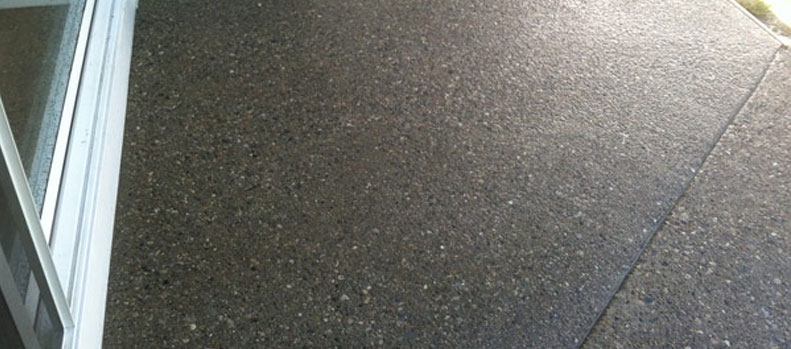It’s a misconception that concrete flooring is a good source of insulation because concrete is not a good insulator. Concrete does have a high thermal mass, which means it is great for storing and releasing thermal energy, or heat. For this reason, concrete can be mistaken for insulation because it does cause a delay in the release of thermal (heat) energy. The amount of delay is directly related to the thickness and the density of the concrete.
R-Value
All materials are given a number to indicate its insulating capability. The higher the R-value, the more resistant the material is to the transfer heat from one side to the other. The R-value of concrete will depend on the density and thickness. A low-density concrete has a higher R-value. A low-density concrete slab for flooring typically has an R-value of 0.1 to 0.2 per inch of thickness, so a floor that is 6-inches thick would have an R-value between 0.6 to 1.2. This R-value is relatively low compared to other materials. For example, a hardwood floor would have an R-value of about 0.7 and with carpeting is around 2.
Concrete Flooring Heat Loss
While concrete is not an especially good insulator, the heat loss or gain from a concrete slab floor is not significant. It is also not likely to radiate a lot of heat into the home. If the home is well insulated and energy efficient the heat loss through concrete floor will be more pronounced, but still not overly noticed. The largest area for heat loss with a concrete floor is through the edges of the slab that are in direct contact with the outdoors. The perimeter foundation is the most important places to insulate the concrete floor.
However, this all applies to indoor concrete. Depending on the R-value, some concrete can provide decent insulation. If you're looking for a masonry contractor or a concrete contractor, contact the experts at Top Hat Masonry today.

